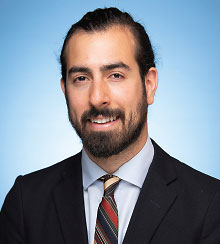Congress Passes Parity, Increases Some MH Funding
Abstract
The massive appropriations package increases funding for programs like the Minority Fellowship Program, allocates funds for mental health crisis care services, and reduces expected cuts to Medicare payments.
At the end of last year, Congress passed a $1.4 trillion appropriations and COVID-19 relief package that has sweeping implications for a vast array of policies, including many related to mental health care and access. The Consolidated Appropriations Act of 2021 (HR 133) combined several annual appropriations bills for federal agencies and COVID-19 supplemental funding.
Significantly, the appropriations package included the Strengthening Behavioral Health Parity Act (HR 7539), for which APA wrote the initial draft and has long advocated. It gives the federal government new powers to regulate and audit health plans to ensure they are in compliance with the 2008 Mental Health Parity and Addiction Equity Act. The legislation was introduced by Reps. Joe Kennedy (D-Mass.), Katie Porter (D-Calif.), Gus Bilirakis (R-Fla.), and Fred Upton (R-Mich.) and was the result of negotiations between the House and Senate over the bipartisan Mental Health Parity Compliance Act. That legislation was introduced by Porter, Bilirakis, and Sens. Chris Murphy (D-Conn.) and Bill Cassidy, M.D. (R-La.).
In a news release, APA President Jeffrey Geller, M.D., M.P.H., noted that the Strengthening Behavioral Health Parity Act will give the government “important tools to stop health plans from discriminating against people with mental illness.” APA CEO and Medical Director Saul Levin, M.D., M.P.A., added that the law, as well as the entire appropriations package, “is tremendously good news for the millions of Americans with mental health and substance use disorders.”
Here are a few highlights of additional mental health policies and programs included in the appropriations package.
A Boost to the Minority Fellowship Program

“Research shows that African American patients do better when they’re treated by African American doctors,” says Steven Starks, M.D. “We need a workforce that reflects the communities we serve.”
The Substance Abuse and Mental Health Services Administration’s Minority Fellowship Program received $16.2 million in the FY 2021 budget, an increase of $2 million. The increased funding is heartening, especially as it comes in the midst of a pandemic that has disproportionately impacted minority communities, said Steven Starks, M.D., chair-elect of the Assembly Committee of Minority and Underrepresented Groups and the Assembly representative of the Caucus of Black Psychiatrists.
“Our behavioral and mental health workforce does not reflect our community, so it’s important that we continue to maintain and augment programs like the Minority Fellowship Program because they’re so valuable to delivering care to communities in need,” he said.
Starks received the Diversity Leadership Fellowship, one of the two Minority Fellowships that APA offers, and he said the experience was incredibly influential on him. “To be able to collaborate with like-minded individuals from other underserved and historically disadvantaged communities sets the stage and tone for your future work,” he said.
More organizations have become increasingly aware of structural racism and are working to dismantle it, Starks said—but there is still a huge amount of work to be done. He would like to see the Minority Fellowship Program model expanded so other institutions, such as medical centers or states, could build similar programs.
Mitigating Medicare Payment Cuts
The appropriations bill also softened planned cuts to Medicare payments. The Medicare conversion factor—which is used to determine payments for services—was set to be slashed by 10.2%, from $36.09 in 2020 to $32.41 in 2021. The reduction was meant to offset an increase to relative value units (RVUs) that the Centers for Medicare and Medicaid Services (CMS) finalized in December, but the bill reduced the planned conversion factor cut by more than half. The new conversion factor for 2021 is $34.89. While payments will still be slightly lower in 2021 for those psychiatric services for which the RVUs were not increased, the change in the conversion factor means that the anticipated payment cuts will be less.
On a more positive note, psychiatrists providing outpatient evaluation and management (E/M) services will see an even bigger increase in payments based on the increase in RVUs and the higher than anticipated conversion factor. This also holds true for initial psychiatric diagnostic evaluations (90791 and 90792) and the stand-alone psychotherapy codes, which also saw an increase in RVUs from CMS.
Telehealth Expansion for Mental Health Services
Additionally, the legislation permanently expands mental health services provided via telehealth by easing geographic and site-of-service restrictions under the Medicare program. Last year, Congress temporarily expanded telehealth services for mental health and substance use disorders as part of the flexibilities associated with the public health emergency declaration. The new law will permanently expand mental health via telehealth by removing restrictions that limited telehealth services to Medicare beneficiaries with mental health conditions who reside in rural or designated health shortage areas and allow a patient to receive these services from the home. This provision, which goes into effect following the expiration of the public health emergency declaration, is consistent with current law that provides a permanent exception to these Medicare restrictions for substance use disorder and co-occurring mental health services that passed Congress in 2018 under the SUPPORT Act.
However, the provision requires a one-time, in-person evaluation within the six months prior to the patient’s first telehealth service. The new law does not specify if it applies to only new patients. APA opposed the in-person evaluation and will engage with regulators on the new law. APA will also continue to advocate with Congress and federal regulators to extend the telehealth flexibilities beyond the public health emergency declaration, allow for audio-only services via telehealth, and provide for parity payment for these services.
Increased Funding for Federal Agencies and SUD Programs
The Substance Abuse and Mental Health Services Administration (SAMHSA) received an FY 2021 budget of $6 billion, representing an $133 million increase over the previous fiscal year.
The COVID-19 relief package also provided SAMHSA with one-time funding of $4.25 billion to respond to the pandemic, $600 million of which was devoted to Certified Community Behavioral Health Clinics (CCBHC), and $50 million to suicide prevention programs. Additionally, the demonstration programs for CCBHCs were extended by three years.
Several federal research agencies also received increased funding over their 2020 budgets, including $1.47 billion for the National Institute on Drug Abuse, $390 million for the National Institute on Minority Health and Health Disparities, and $2 billion for the National Institute of Mental Health. The package also includes $25 million for gun violence prevention research.
Congress also increased funding for the Substance Use Disorder Treatment Workforce Program, a loan repayment program through the Health Resources and Services Administration, by $4 million to $16 million.
Additionally, across the appropriations package, $4 billion was allocated to fight the opioid crisis, an increase of $85 million. Some of those funds are specified for programs like drug courts, while others are devoted to other prevention and treatment efforts carried out by the states.
Increased Funding for Mental Health Crisis Care

Matthew Goldman, M.D., M.S., is hopeful that, as the implementation of 988 as the national number for the National Suicide Prevention Lifeline by July 2022 draws nearer, the federal government will continue to fund the crisis services system.
The package includes an additional $35 million for the Mental Health Block Grant to initiate a new set-aside for which APA has long advocated. The funds will go toward evidence-based crisis care services, such as crisis call centers, mobile crisis services, or crisis stabilization programs (see Psychiatric News).
The funding, said Matthew Goldman, M.D., M.S., is a big win for APA and other mental health advocates. “Increasingly, we’re seeing jurisdictions across the country looking for mental health crisis care solutions that can be alternatives to a law enforcement response,” said Goldman, a member of APA’s Council on Advocacy and Government Relations and medical director of the San Francisco Department of Public Health’s Comprehensive Crisis Services.
Goldman said he is optimistic because the inclusion of the funding indicates that Congress is aware of and willing to address the problems. While he pointed out that $35 million across all the states and territories may not be a huge amount of money, it is an important first step and will encourage states to evaluate their crisis systems and enable them to develop strategies to better meet the need. ■
“APA Applauds Congress for Taking Action to Strengthen Mental Health Parity; Including Key Mental Health Programs in Year-End Funding Package” is posted here.



